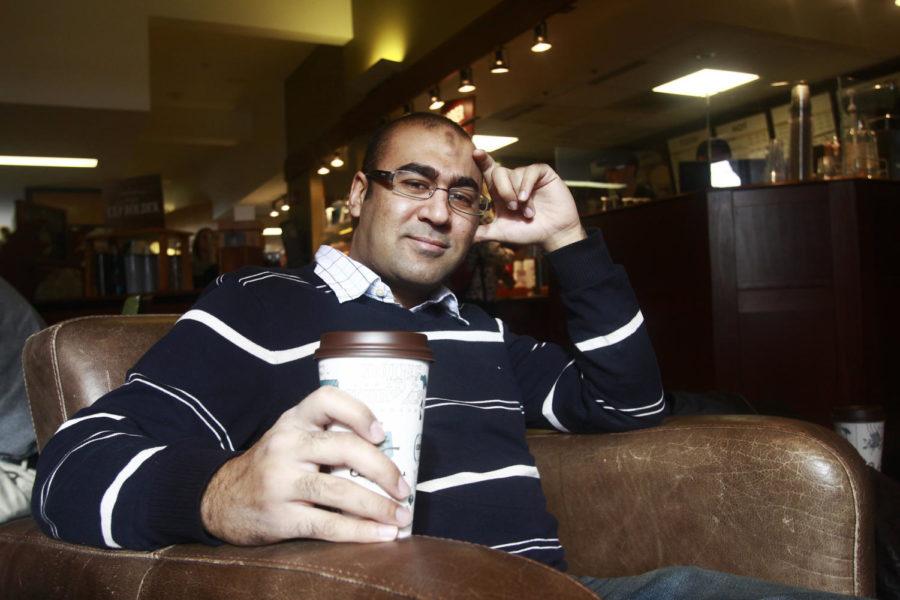Revolution through the eyes of a student
January 25, 2013
“My father told me I shouldn’t go anywhere, but I went to Tahrir Square anyways,” said Mohamed El-Mahalawy as he happily sipped his tea in a small coffee shop in Ames.
El-Mahalawy, now a Ph.D. student in electrical engineering and president of the Egyptian Student Association at Iowa State, was on the front lines of the historic Egyptian Revolution two years ago when the people of Egypt overthrew long-time ruler Hosni Mubarak in one of the biggest displays of public protest in recent memory.
The major protests in Cairo’s Tahrir Square, which began on Jan. 25, 2011, known as the “Day of Revolt,” were an extension of similar social unrest in Tunisia and other countries across the Middle East and North Africa where ordinary citizens, frustrated with decades of tyranny and inequality, took to the streets to demand justice.
Initially a crowd of about 10,000 in central Cairo, the protesters’ ranks soon swelled to more than a million in the following days as pressure for Mubarak to resign mounted.
“I was in Tahrir Square on Jan. 25th,” Mahalawy said. “After we heard about Tunisia, there were a lot of people saying we had to go to the streets.”
In Egypt, the protesters demanded the resignation of Mubarak, but the aging ruler refused to concede defeat and sent the police to the streets to quell the protests.
Soon, heavy clashes erupted between police and protesters, but that only emboldened the opposition, El-Mahalawy said.
“The people had a level of depression and a high level of anger. So, in a sense, we didn’t have anything to lose,” El-Mahalawy said. “People began to take up camp in the square and one guy told me he wouldn’t leave this place until Mubarak left.”
On Jan. 26 and 27, 2011, the government shut down the internet to impede protesters’ ability to communicate with each other. Much of the major protests had been organized via Twitter and Facebook. Despite the government intrusion, the protests continued to grow.
On Friday, Jan. 28, 2011, the planned “Friday of Rage” brought hundreds of thousands to Tahrir and other locations around the country.
“… Everyone went to pray and then came out of the mosques and went to the streets,” El-Mahalawy recounted. “On this day, the police started fighting back very harshly. Some people got killed. It became the police were fighting the people … This was the point of no return.”
Soon afterward, El-Mahalawy noted that Mubarak released his men upon the populace and looting and fighting became a major concern among Egyptians. Accordingly, El-Mahalawy went home to Alexandria to be with his family in the northern part of Egypt.
“When I was back in Alexandria, we had to take shifts to defend our homes,” El-Mahalawy said. “But, while I was there, Mubarak spoke to the public and made some promises.”
El-Mahalawy went on to say that one good thing Mubarak did during this short speech to the Egyptian people was to appoint a vice president, which effectively meant his son would not succeed him.
However, he refused to step down.
“Mubarak then sent his thugs to Tahrir and they started attacking people, and the army didn’t intervene,” El-Mahalawy said. “Vice President Suleiman was trying to talk to the opposition, but it wasn’t working.”
Massive protests, clashes and social upheaval enveloped Egypt for the next 10 days until Feb. 11, 2011, when Mubarak formally resigned and handed transitional power over to the military, which was noted for refusing, for the most part, to use live ammunition on the protesters throughout the whole ordeal.
“I was in Alexandria when Mubarak resigned,” El-Mahalawy said. “Ultimately, it was the generals who forced Mubarak to do it. I don’t think Mubarak hates Egypt or Egyptians, he just did it because it was time.”
In just three weeks, the people of Egypt had successfully — and mostly nonviolently — overthrown a dictator who had ruled the North African state for 30 years. But this was only the beginning of a long road ahead for Egypt, El-Mahalawy said.

















